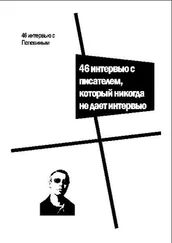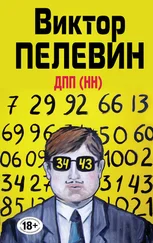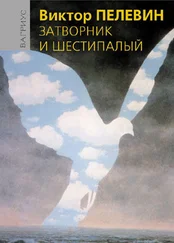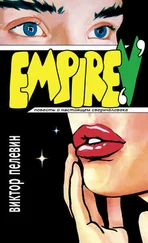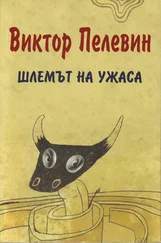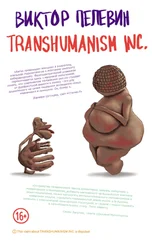Виктор Пелевин - Buddha's Little Finger
Здесь есть возможность читать онлайн «Виктор Пелевин - Buddha's Little Finger» весь текст электронной книги совершенно бесплатно (целиком полную версию без сокращений). В некоторых случаях можно слушать аудио, скачать через торрент в формате fb2 и присутствует краткое содержание. Жанр: Современная проза, на английском языке. Описание произведения, (предисловие) а так же отзывы посетителей доступны на портале библиотеки ЛибКат.
- Название:Buddha's Little Finger
- Автор:
- Жанр:
- Год:неизвестен
- ISBN:нет данных
- Рейтинг книги:5 / 5. Голосов: 1
-
Избранное:Добавить в избранное
- Отзывы:
-
Ваша оценка:
- 100
- 1
- 2
- 3
- 4
- 5
Buddha's Little Finger: краткое содержание, описание и аннотация
Предлагаем к чтению аннотацию, описание, краткое содержание или предисловие (зависит от того, что написал сам автор книги «Buddha's Little Finger»). Если вы не нашли необходимую информацию о книге — напишите в комментариях, мы постараемся отыскать её.
Buddha's Little Finger — читать онлайн бесплатно полную книгу (весь текст) целиком
Ниже представлен текст книги, разбитый по страницам. Система сохранения места последней прочитанной страницы, позволяет с удобством читать онлайн бесплатно книгу «Buddha's Little Finger», без необходимости каждый раз заново искать на чём Вы остановились. Поставьте закладку, и сможете в любой момент перейти на страницу, на которой закончили чтение.
Интервал:
Закладка:

Buddha’s Little Finger
by VICTOR PELEVIN
translated by Andrew Bromfield
Gazing at the faces of the horses and the people, at this boundless stream of life raised up by the power of my will and now hurtling into nowhere across the sunset-crimson steppe, I often think: where am I in this flux?
GHENGIS KHANPREFACE
For numerous reasons the name of the true author of this manuscript, written during the early 1920s in one of the monasteries of Inner Mongolia, cannot be mentioned, and it is published here under the name of the editor who prepared it for publication. This version does not include the descriptions of a number of magical procedures which figured in the original, nor does it retain the narrator’s rather lengthy reminiscences of his life in pre-revolutionary St Petersburg (the so-called Petersburg Period). The author’s definition of the genre of the work as ‘a peculiar flight of free thought’ has also been omitted: it would seem quite clear that it can only be regarded as a joke.
The story narrated by the author is of interest as a psychological journal which, while it undoubtedly possesses a number of artistic virtues, makes absolutely no claim to anything beyond that, although at times the author does undertake to discuss topics which, in our view, are in no need of discussion. The somewhat spasmodic nature of the narrative reflects the fact that the intention underlying the writing of this text was not to create a ‘work of literature’, but to record the mechanical cycles of consciousness in such a way as to achieve a complete and final cure for what is known as ‘the inner life’. Furthermore, in two or three places, the author actually attempts to point directly to the mind of the reader, rather than force him to view yet another phantom constructed out of words; unfortunately this is far too simple a task for his attempts to prove successful. Literary specialists will most likely perceive nothing more in our narrative than yet another product of the critical solipsism which has been so fashionable in recent years, but the true value of this document lies in the fact that it represents the first attempt in the history of culture to embody in the forms of art the Mongolian Myth of the Eternal Non-Return.
Let us briefly introduce the main hero of the book. The editor of this text once read me a tanka written by the poet Pushkin:
And yet this year of gloom, which carried off
So many victims brave and good and beautiful,
Is scarce remembered even
In some simple shepherd’s song
Of sweet and soft lament.
In translation into Mongolian the phrase ‘brave victim’ has a strange ring to it; however, this is not the proper place to explore that theme, and we merely wished to point out that the final three lines of this verse could well be a reference to the story of Vasily Chapaev.
What is now known about this man? As far as we are able to judge, in the memory of the common people his image has assumed the features of pure myth, and Chapaev is now Russian folklore’s closest equivalent of the famous Khadji Nasruddin: he is the hero of an infinite number of jokes derived from a famous film of the 1930s, in which Chapaev is represented as a Red cavalry commander fighting against the White army, who engages in long, heart-to-heart conversations with his adjutant Petka and his machine-gunner Anka and finally drowns while attempting to swim across the Ural river during a White attack. All this, however, bears absolutely no relation whatsoever to the life of the real Chapaev - or if there is some relation, then the true facts have been distorted beyond all recognition by conjecture and innuendo.
This tangled web of confusion originated with the book Chapaev, which was first printed in French by a Paris publishing house in 1923 and then reprinted with unaccountable haste in Russia: we shall not waste any time on demonstrating the book’s lack of authenticity. Anyone who wishes to make the effort will discover in it a mass of discrepancies and contradictions, while the very spirit of the book is the best possible proof that the author (or authors) had absolutely no involvement with the events which they endeavour in vain to describe. In addition, it should be noted that although Mr Furmanov did meet the historical Chapaev on at least two occasions, he could not possibly have been the author of this book, for reasons which will emerge in the course of our narrative. It is therefore hard to credit that even now many people regard the text ascribed to him as virtually a documentary account.
In fact, it is not difficult to detect behind this forgery, now more than seventy years old, the activity of well-financed and highly active forces which were interested in concealing the truth about Chapaev from the peoples of Eurasia for as long as possible. However, the very discovery of the present manuscript seems to us a clear indication that the balance of power on the continent has shifted.
To conclude, we have altered the title of the original text (which was ‘Vasily Chapaev’) precisely in order to avoid any confusion with the aforementioned fake. The title ‘Buddha’s Little Finger’ has been chosen as being adequately indicative of the major theme, while not overly suggestive, although the editor did suggest another alternative, ‘The Garden of the Divergent Petkas’.
We dedicate the merit created by this text to the good of all living creatures.
Gate Gate Paragate Parasamgate Bodhi Svaha
–Urgan Jambon Tulku VII
Chairman of the Buddhist Front
for Full and Final Liberation (FFL (b))
1
Tverskoi Boulevard was exactly as it had been when I last saw it, two years before. Once again it was February, with snowdrifts everywhere and that peculiar gloom which somehow manages to infiltrate the very daylight. The same old women were perched motionless on the benches; above them, beyond the black latticework of the branches, there was the same grey sky, like an old, worn mattress drooping down towards the earth under the weight of a sleeping God.
Some things, however, were different. This winter the avenues were scoured by a blizzard straight off the steppes, and I should not have been in the least surprised to have come face to face with a pair of wolves during the course of my walk. The bronze Pushkin seemed a little sadder than usual -no doubt because his breast was covered with a red apron bearing the inscription: ‘Long Live the First Anniversary of the Revolution!’. I felt not the slightest inclination for ironical comment on the fact that the cheers were intended for an event which could not by definition last longer than a single day - just recently I had been afforded more than ample opportunity to glimpse the demonic face concealed behind such lapidary absurdities inscribed on red.
It was beginning to get dark, but I could still make out Strastnoi Monastery through the snowy haze. On the square in front of it were two open trucks, their tall side walls tightly strung with bright scarlet material; there was a crowd jostling around them and the orator’s voice carried to where I stood. I could scarcely make out anything of what he said, but the general meaning was clear enough from his intonation and the machine-gun rattle of the V in the words ‘proletariat’ and ‘terror’. Two drunken soldiers walked past me, the bayonets on their rifles swaying behind their shoulders. They were hurrying towards the square, but one of them fixed his brazen gaze on me, slowed his pace and opened his mouth as though about to say something; fortunately - for him and for me - his companion tugged him by the sleeve and they walked on.
Читать дальшеИнтервал:
Закладка:
Похожие книги на «Buddha's Little Finger»
Представляем Вашему вниманию похожие книги на «Buddha's Little Finger» списком для выбора. Мы отобрали схожую по названию и смыслу литературу в надежде предоставить читателям больше вариантов отыскать новые, интересные, ещё непрочитанные произведения.
Обсуждение, отзывы о книге «Buddha's Little Finger» и просто собственные мнения читателей. Оставьте ваши комментарии, напишите, что Вы думаете о произведении, его смысле или главных героях. Укажите что конкретно понравилось, а что нет, и почему Вы так считаете.

